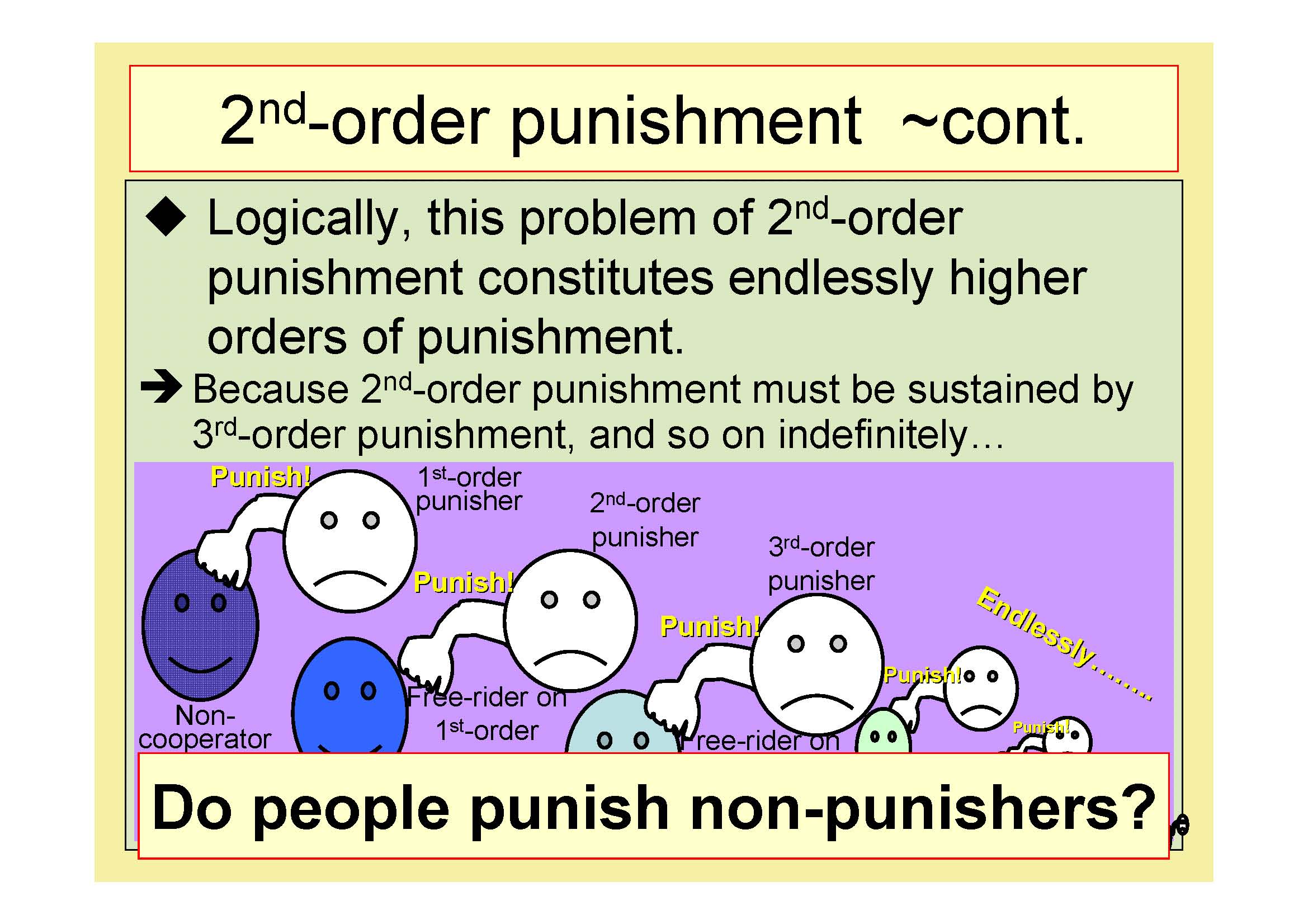

Toko Kiyonari
(McMaster University)
Punishing non-cooperators doesn't yield a solution to the problem of
cooperation but rewarding cooperators does


Cooperation within non-kin groups presents an evolutionary puzzle. Punishment can sustain cooperation, but the provision of such "altruistic punishment" suffers from a second-order free-riding problem since non-punishers can free-ride on the costly punishment provided by others. A possible solution to this problem is "second-order punishment" of non-punishers; more generally, the threat or promise of higher-order sanctions might be what maintains the lower-order sanctions that enforce cooperation in collective action problems. We found that voluntary second-order punishment was very rare, but second-order rewarding was common enough to cover the costs of first-order rewarding. Furthermore, people typically didn't reward those who "altruistically" punished non-cooperators, but punished those who failed to reward cooperators. This suggests that people are more inclined to reward those who deliver altruistic benefits than those who deliver altruistic punishment, and thus that rewards may have played a more important role than punishment in the emergence of human non-kin cooperation.